-
Search -
Accessibility -
Members Login
About the course:
This course on Diversity, Equity and Inclusion (DEI) is thoughtfully designed by the team at One Future Collective on behalf of ICVA.
The course comprises a series of concise and informative videos for you to watch at your own pace. Take the time to reflect on and question the content. Additional readings and resources are available for further exploration.
Objectives of this course are:
Who is this course for?
This course caters to individuals at various stages of their DEI journey. Whether you are just starting out or seeking a refresher, the content will help you understand and reflect on your current position in the DEI landscape. Remember, learning continues beyond this course.
ICVA and DEI
Diversity, equity and inclusion (DEI) is integral to Transformation 4 of the ICVA 2030 Strategy. ICVA actively supports its members in the DEI initiatives by:
Module 1 explores the meaning and significance of diversity, equity, and inclusion (DEI), with a focus on understanding the fundamental concepts and importance of DEI. It breaks down each concept, emphasizing their interrelation. Diversity represents individual differences, equity ensures fair resource distribution, and inclusion turns diversity into practice. The Equity Diagram illustrates the difference between equality and equity. The module delves into the significance of DEI, discussing its impact on innovation, workplace culture, employee well-being, and organizational transparency. Rationales for DEI initiatives include compliance, business case, human rights protection, and challenging power structures. The module stresses the importance of DEI for innovation, improved workplace culture, employee well-being, and organizational transparency. Additionally, the DEI continuum is introduced, outlinining various stages organizations may traverse in their DEI journey, from being aware to achieving sustainable integration.
Reflect on the following questions. Engage in discussions with your team, brainstorming potential insights, and documenting your responses.
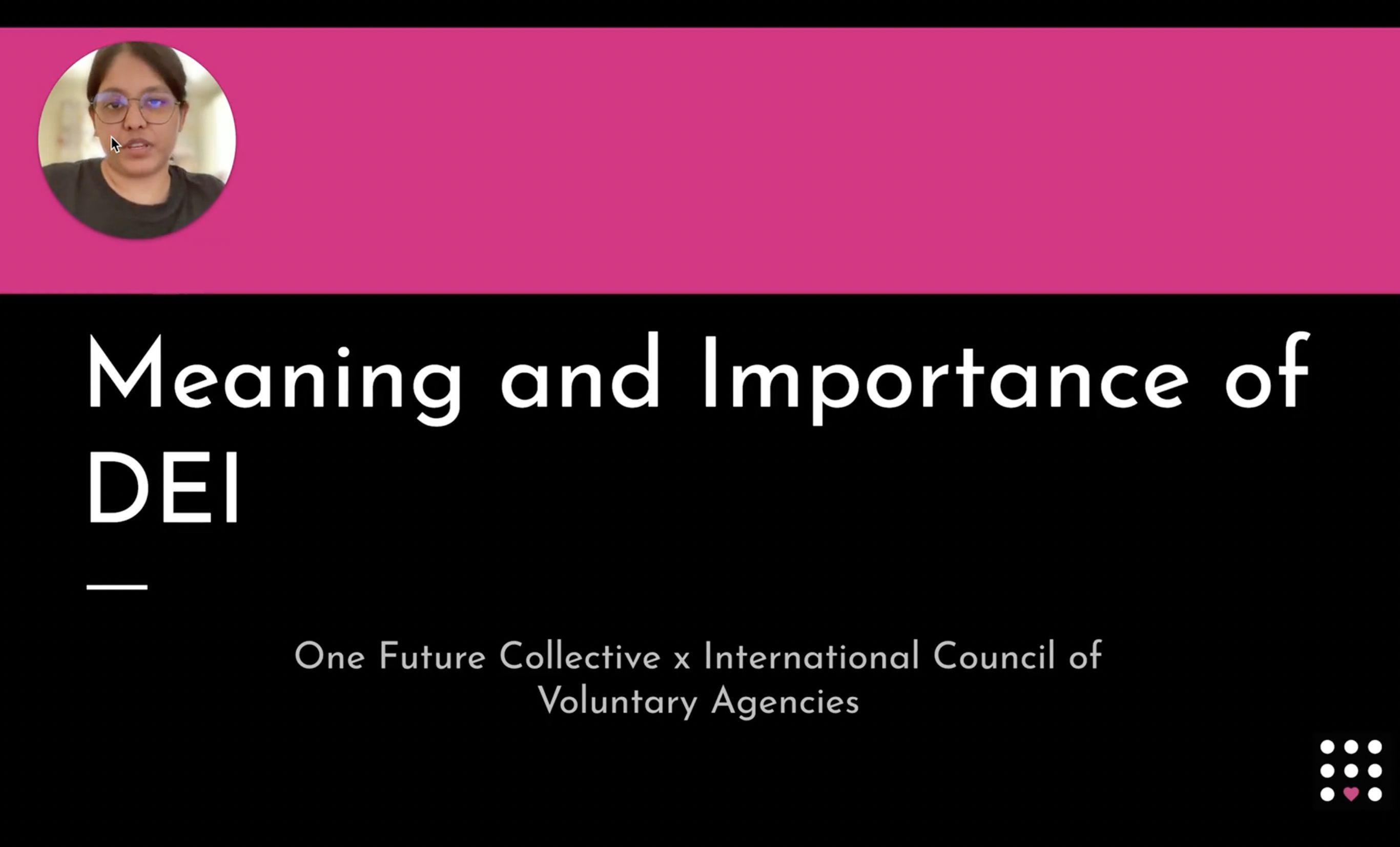
Transcript of the video Module 1 of the Diversity, Equity and Inclusion (DEI) Online Course.
Module 2 of the online course on diversity, equity, and inclusion (DEI) explores guiding principles. It emphasizes principles like collaboration, recognizing biases, transparency, accountability, actionability, adaptability, empathy, and accessibility. These principles are essential for effective DEI initiatives within organizations, ensuring a holistic approach to fostering an inclusive culture.
Reflect on the following questions. Engage in discussions with your team, brainstorming potential insights, and documenting your responses.
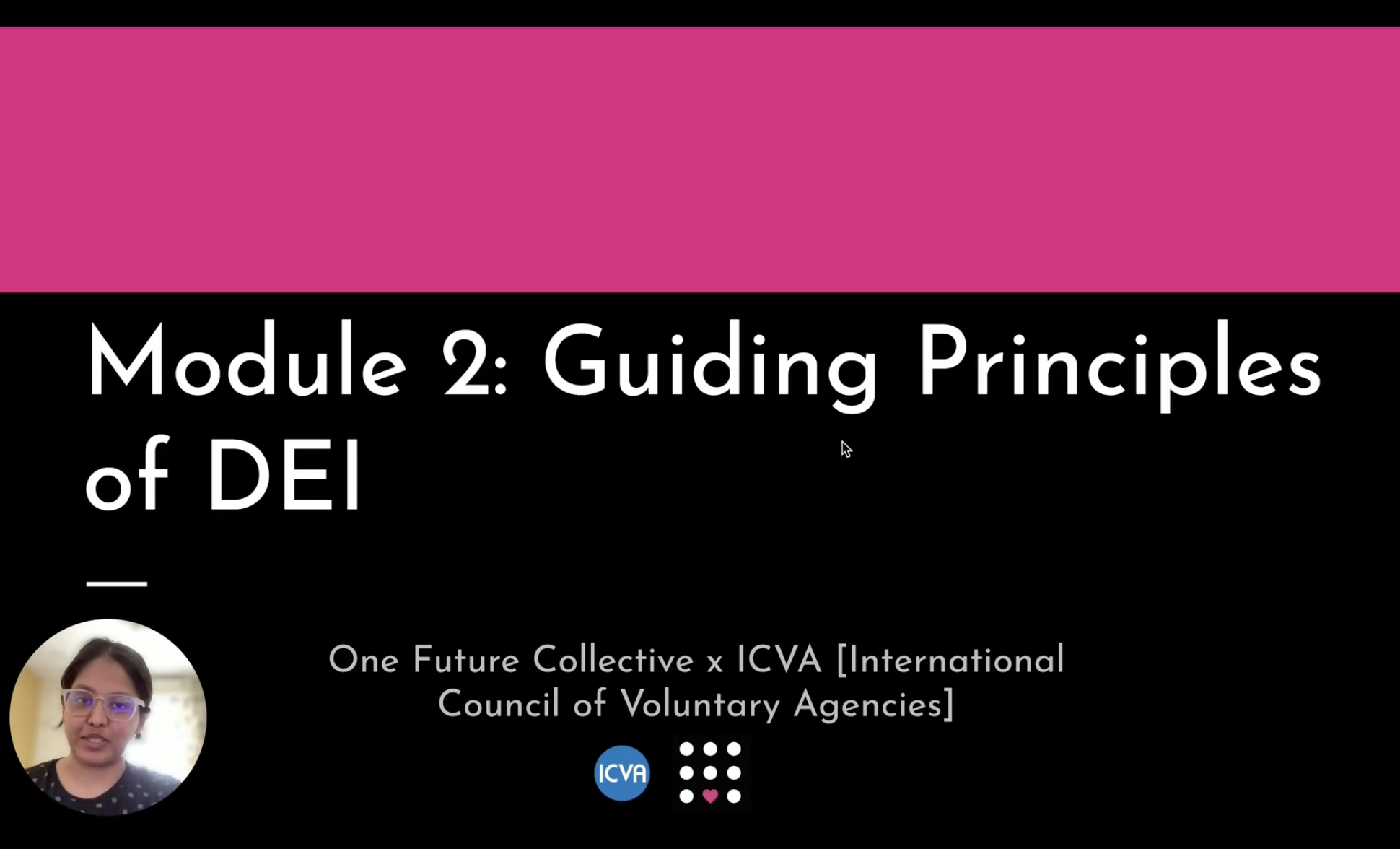
Transcript of the Module 2 video of the Diversity, Equity and Inclusion (DEI) Online Course.
Module 3 explores key concepts, starting with power and privilege. Power is defined as influencing decisions, while privilege involves unearned advantages. Oppression, rooted in injustice, maintains power. Microaggressions and violence are forms of oppression. Intersectionality examines overlapping social categorizations. The interconnected nature of oppression is emphasized, and the wheel of power and privilege is introduced as a reflective tool. Engagement tips include education, avoiding assumptions, using power responsibly, speaking up against discrimination, and embracing feedback for personal growth.
Use the “Wheel of Power and Privilege” tool introduced in the video for reflection. This tool is intended to provide a well-rounded understanding of one’s potential privileges and marginalizations. Individuals are encouraged to map their positions on the wheel by considering various identities and social locations, such as skin colour, formal education, language, body size, neurodiversity, and sexual orientation. The exercise aims to help individuals reflect on the power they may hold, both individually and within groups, fostering awareness and situating themselves in the larger context of diversity, equity, and inclusion.
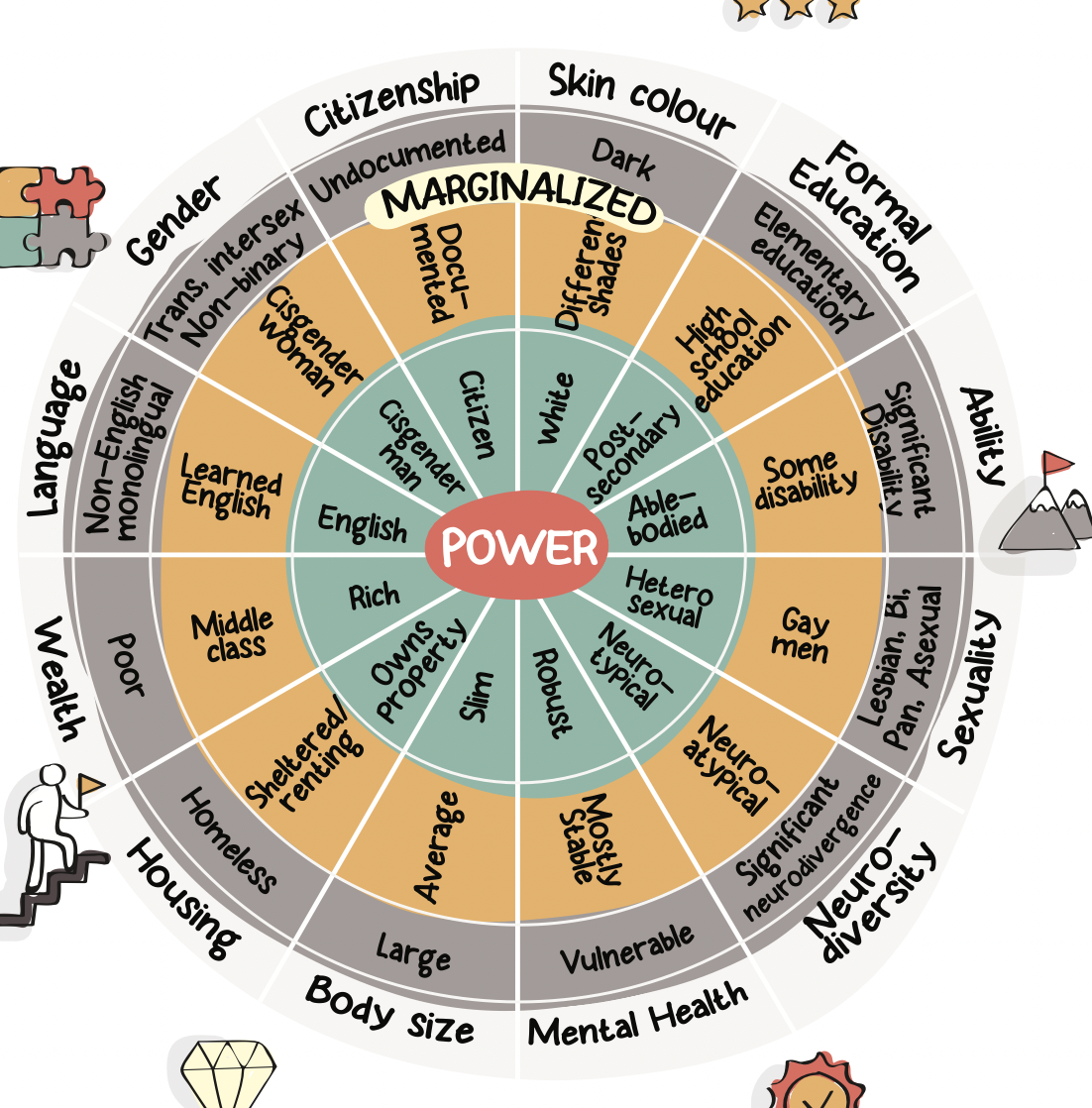
The wheel of power and privilege is a reflective activity to map and explore issues of power and privilege in an intersectional way. It can be done alone as a self-awareness tool or in a group to highlight how different people might benefit from or be marginalised by systems in our society.
With thanks to Recipes for Wellbeing.
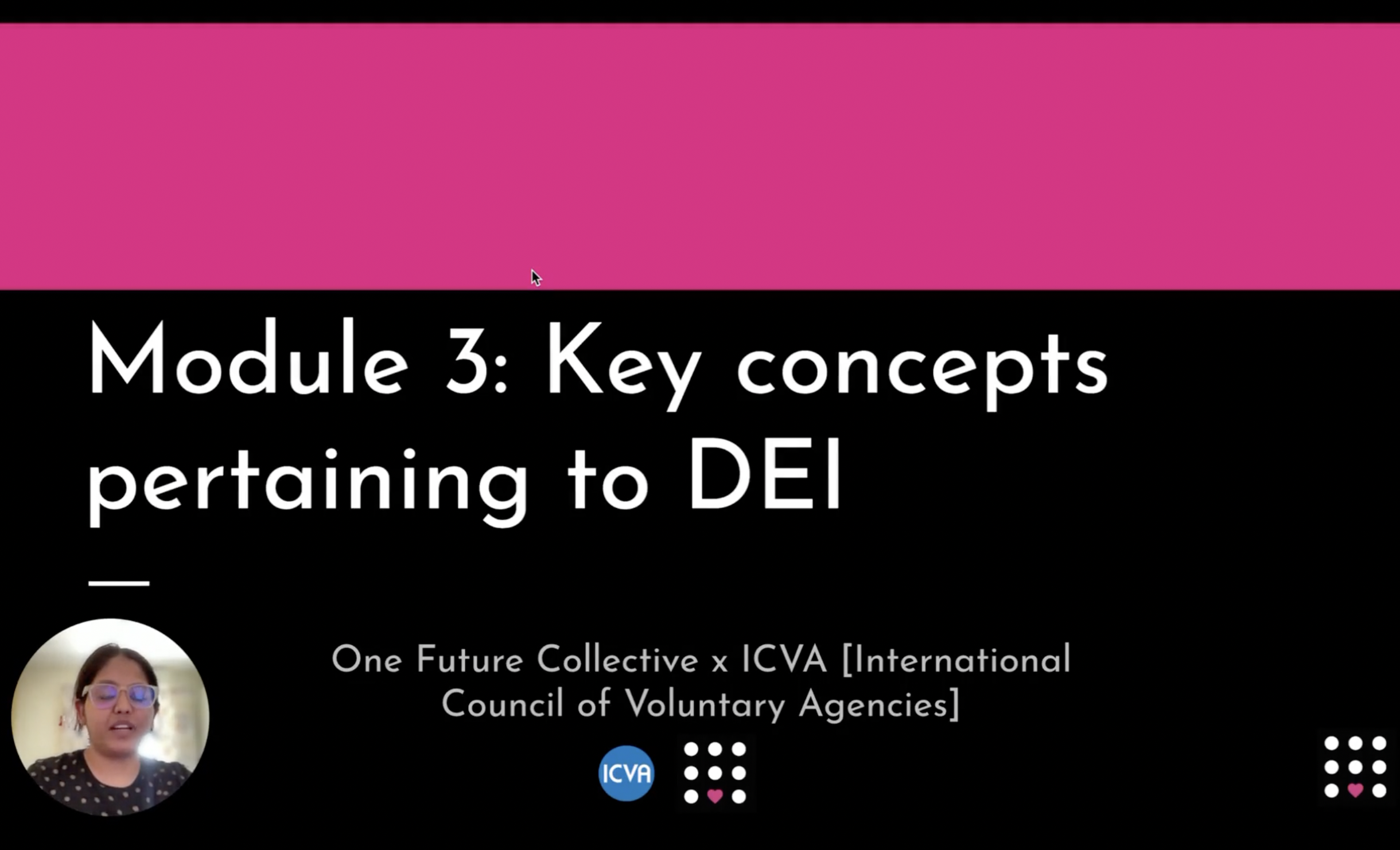
Transcript of the Module 3 video of the Diversity, Equity and Inclusion (DEI) Online Course.
Module 4 focuses on situating Diversity, Equity, and Inclusion (DEI) within the humanitarian sector. The module emphasizes understanding the unique relevance of DEI in humanitarian work, addressing challenges organizations may face in implementing DEI, and highlights the importance of translating DEI principles into action. The importance of DEI in fostering intersectional solutions, enhancing community representation, and addressing systemic inequalities within the humanitarian sector is discussed. Challenges include fear of speaking up, lack of trust in reporting mechanisms, limited funding, bureaucratic decision-making processes, diminished prioritization, and the need for ecosystemic interventions.
Reflect on the following questions. Engage in discussions with your team, brainstorming potential insights, and documenting your responses.
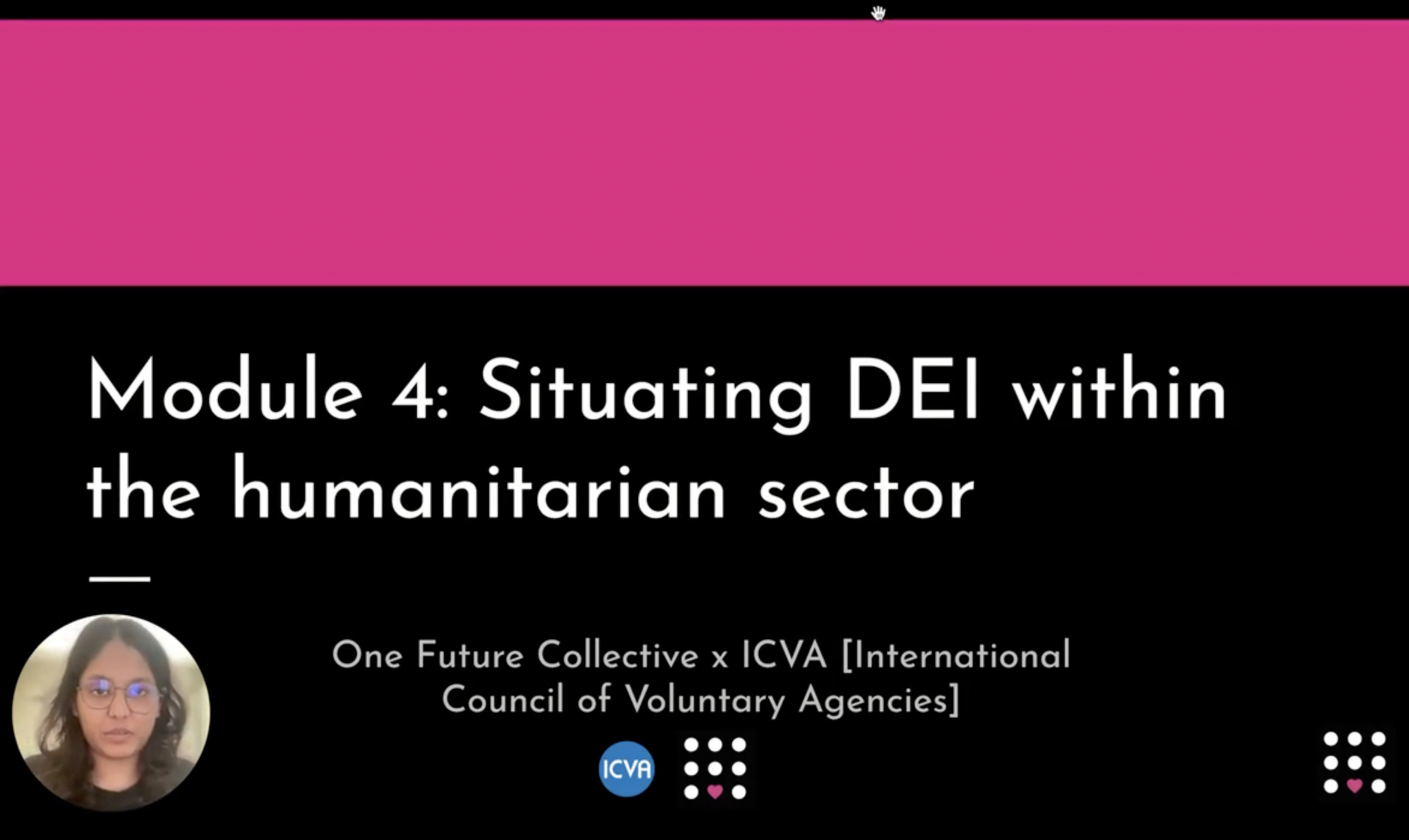
Transcript of the Module 4 video of the Diversity, Equity and Inclusion (DEI) Online Course.
Module 5 focuses on translating Diversity, Equity, and Inclusion (DEI) into action for organizations. The module explores the challenges organizations face in engaging with DEI and introduces the DEI roadmap. The roadmap involves information gathering, goal identification, developing a DEI strategy, implementation, and continuous monitoring and evaluation. Common pitfalls in DEI initiatives are discussed, emphasizing the need for engagement, measurable indicators, and agility. The module concludes by addressing the support ecosystem necessary to sustain DEI efforts, including building motivation, resourcing, embedding DEI in organizational culture, and investing in learning and expertise building. The importance of sustaining DEI through integration with organizational vision, measurable goals, collaboration, and recording incremental success is emphasized.
The DEI canvas questions aim to guide reflection on DEI commitments, encouraging organizations to articulate insights, set realistic priorities, and identify strengths and weaknesses for effective action.
Engage in discussions with your team to complete the DEI canvas.
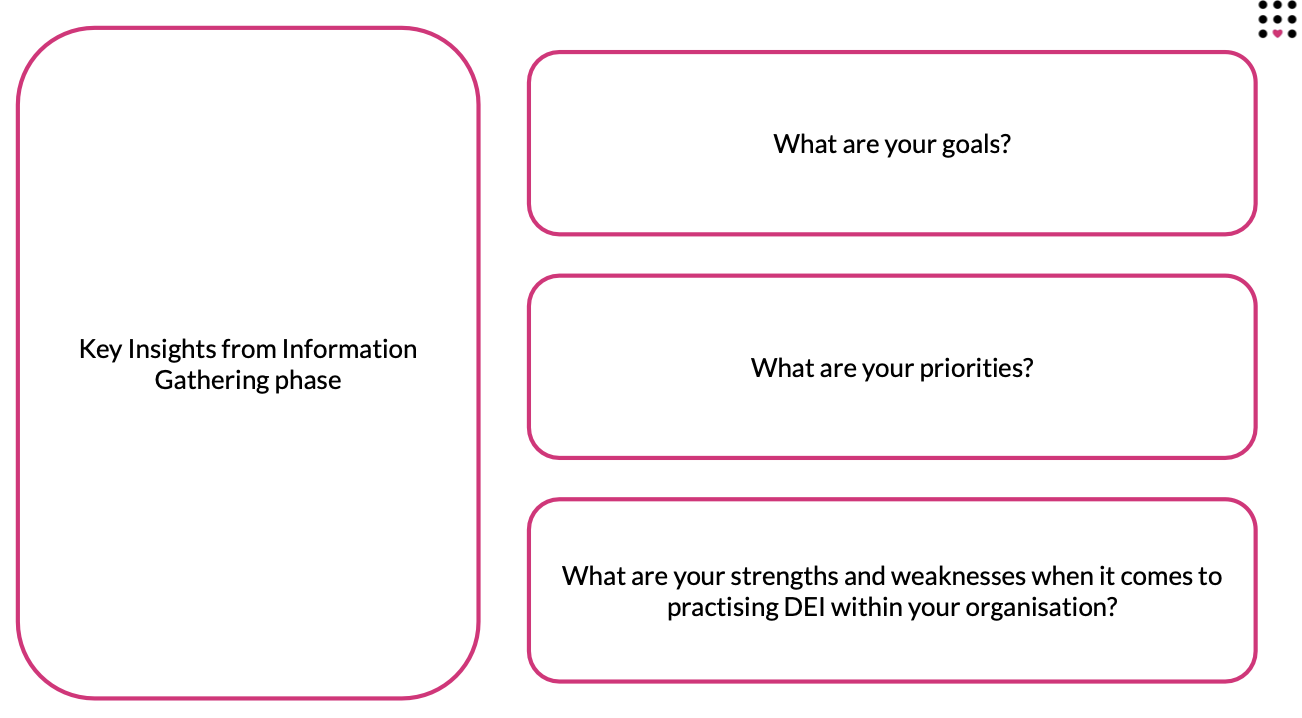
Use the DEI Canvas to reflect on your DEI commitments, set realistic priorities and identify strengths and weaknesses for effective action.
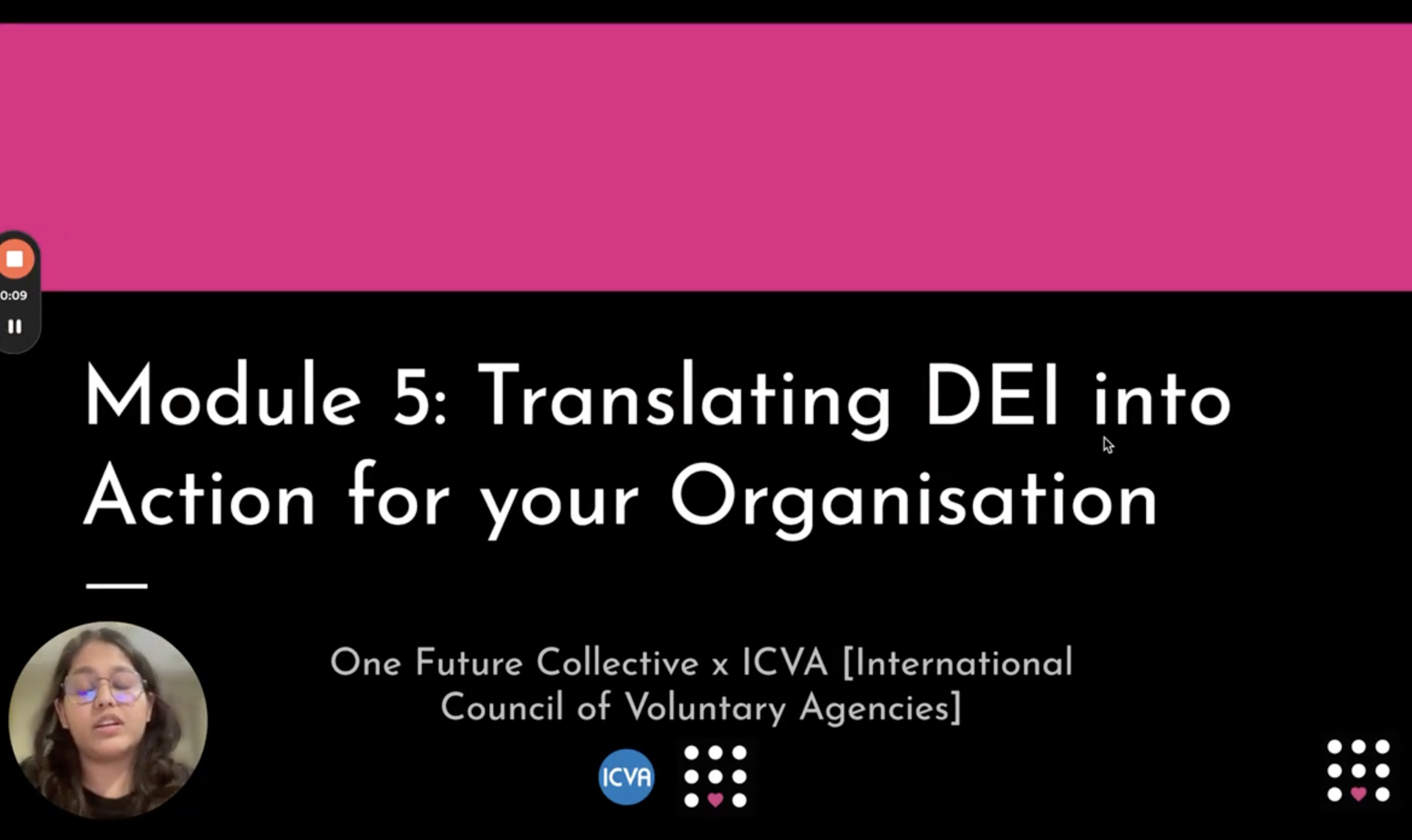
Transcript of the Module 5 video of the Diversity, Equity and Inclusion (DEI) Online Course.

ICVA is a global network of non-governmental organisations whose mission is to make humanitarian action more principled and effective by working collectively and independently to influence policy and practice.
International Council of Voluntary Agencies
NGO Humanitarian Hub,
La Voie-Creuse 16, 1202, Geneva, Switzerland
Email: secretariat@icvanetwork.org
A curation of monthly updates, latest news, tools, and events around forced migration, coordination, financing, and cross cutting issues all sent straight to your inbox.